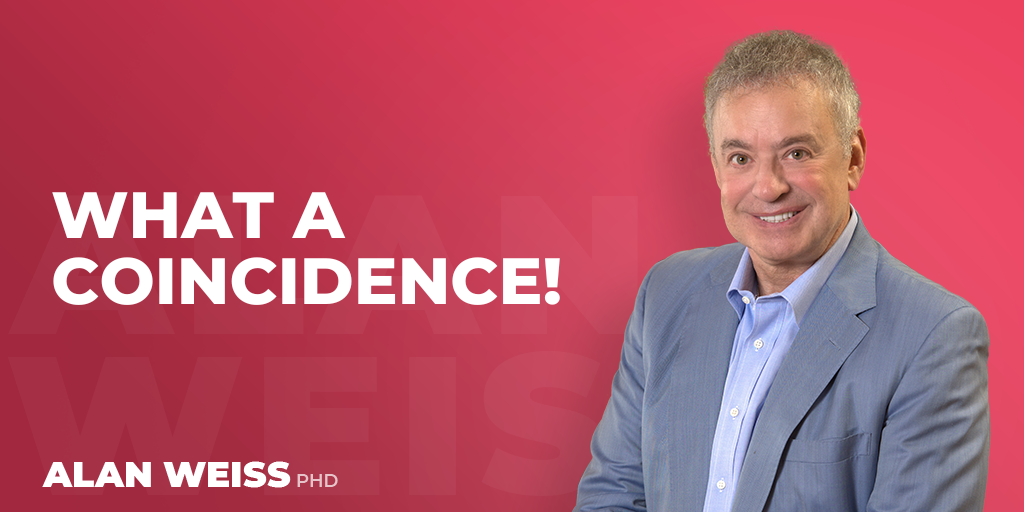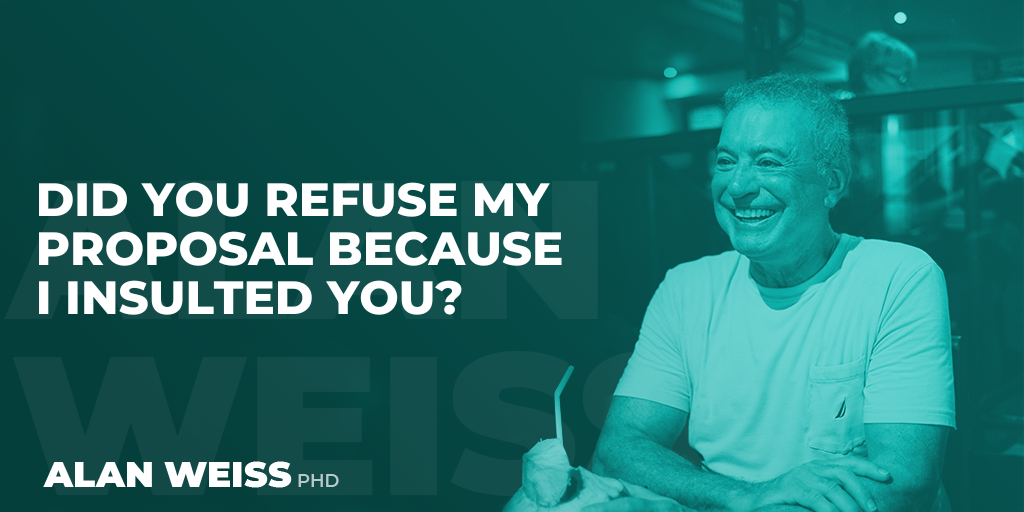Saying “No” on the way to “Yes”
I’ve written for 25 years that you must be willing to abandon business at least every two years, because you can’t reach out unless you let go. Too many consultants lug around long-time clients like street people unwilling to jettison anything in the shopping cart that contains their life’s possessions.
A great many clients are dysfunctional: not profitable enough, too difficult, not interesting, too labor intense. You have to let them go in order to reach out to new, better, more profitable ones. Yet we cling with ferocity, holding on with our fingernails, as if all business is good business.
It isn’t.
The corollary is that we must say “No” to some new business that comes our way because, well, all business is not good business. Troublesome prospects make terrible clients—they don’t magically improve. Why take on low profit, high labor clients? It’s usually because the consultant believes that it’s immoral, unethical, and illegal to turn down any paying business, no matter how frightening the warning signs and tocsins.
I’ve seen this trait in otherwise successful people, who are making well into seven figures. They’ve never lost the fear of being hungry, never achieved the stature in their own eyes of someone who is in demand and can afford to select ideal partners. These are the people who don’t enjoy their riches, because they’re seldom off planes unless they’re in hotels.
The prospect should evaluate you, and you should evaluate the prospect. What are your decision criteria? Are you comfortable with the buyer? Do you see each other as peers? Is the work interesting? Can you accomplish a great deal without traveling? Will you have a significant impact?
Is the fee high and the labor low?
You have to say “No” on the way to “Yes.” Otherwise, you’ll be caught in the undergrowth of minor work and major worries. The sign of someone with high self-esteem and confidence in their abilities is the wherewithal to reject certain business.
Counterintuitive? Perhaps. But highly productive.
© Alan Weiss 2011. All rights reserved.







Kurt Buehlmaier
Alan,
Great and valuable point! People need to notice that 80% of their problems come from about 20% of their business. They need to see if there is a simple fix; if not they need to cut ties. Constantly reassessing also means that you are paying close attention and therefore learning. As we learn we improve. Thanks again Alan!
Alan Weiss
Good to hear from you, Kurt!
ArunKumar Krishnamurthy
Alan, I have begun saying no to unprofitable business that doesn’t have a long-term prospect or other benefits. I am really feeling good about me. No exploitative and victim-mindset anymore. Thanks for the article.
Alan Weiss
Good for you!